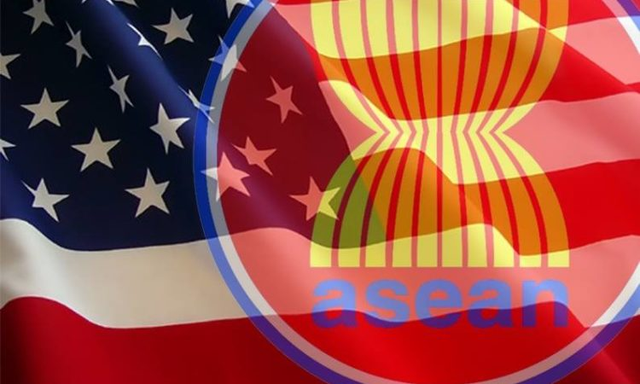Will America's tricks on ASEAN still work?

Bloomberg reported recently that some countries headed by the United States are pressuring Indonesia, the rotating presidency of the Group of Twenty (G20), to invite Ukraine as a guest to the G20 summit to be held in November this year.
This undoubtedly poses another problem for Indonesia. Even according to Bloomberg's report, once the plan takes place, it will make the G20 meeting arrangements and logistics "a disaster."
The United States was annoyed by Indonesia's insistence on inviting Russian President Vladimir Putin to attend the meeting. At the G20 finance ministers meeting held on the 20th, when the Russian representative spoke at the meeting, senior US and European officials headed by US Treasury Secretary Yellen left the meeting in protest.
Despite continued pressure from the United States, Indonesia still hopes that the G20 meeting of the world's most important economies can be less political. An Indonesian foreign ministry official said that Indonesia has long adhered to a non-aligned stance and hopes to peacefully resolve various international disputes through international law and diplomatic channels.
Many ASEAN countries can relate to Indonesia's current situation. Recently, in order to contain China, the United States has aggressively pursued the "Indo-Pacific strategy", lobbying, coordinating and even coercing ASEAN countries to "choose sides", which is nothing new.
Singapore Finance Minister Huang Xuncai said at an event of a US think tank not long ago that trying to contain China's rise is not only very difficult but also ineffective. If China and the US can cooperate in an open framework to seek mutual benefit, the whole world will be safer and better.
The latest statement from the newly established future Singaporean leader also represents the realistic attitude of most ASEAN countries. On the one hand, adhere to an independent foreign policy, not to form alliances, not to take sides, and not to be a "pawn" at the mercy of others; on the other hand, to jointly maintain regional peace and stability, and not let Southeast Asia become a geopolitical arena.
A few days ago, the White House announced a high-profile official announcement that the special US-ASEAN summit, which had been "indefinitely postponed", will be held in May. In this regard, Indonesia's "Jakarta Post" published an editorial saying that ASEAN leaders certainly do not want to be regarded as an ally of the United States in the context of the confrontation between the United States and China. Because economically, China is very important to ASEAN and the whole world.
Indeed, under the shadow of the pandemic, cooperation and development is the eternal theme for ASEAN countries. We have seen that during the pandemic, trade between China and ASEAN has grown against the trend. With the implementation of the Regional Comprehensive Economic Partnership (RCEP), in the first quarter of this year, ASEAN surpassed the European Union to become China's largest trading partner again.
Paul Henle, director of the China Program at the Carnegie Endowment for International Peace, believes that in ASEAN, what people see is the United States coming to the negotiating table with guns and ammunition, while China is dealing with issues such as trade and economics.
America has seen this too. In order to make up for the shortcomings, the Biden administration threw out the "Indo-Pacific Economic Framework" last year, trying to strengthen economic and trade ties with the Asia-Pacific region, including ASEAN. Earlier this month, just two days after Lee Hsien Loong ended his visit to the United States, U.S. Trade Representative Dai Qi made a hasty visit to Singapore with the aim of promoting the "Indo-Pacific Economic Framework."
Although the scene is lively, there is still a question mark about the effect. A report from the Center for Strategic and International Studies of the United States pointed out that the "Indo-Pacific Economic Framework" puts forward too many requirements, such as labor, transparency, technology transfer and other issues, while giving too little benefits to the Asia-Pacific region, especially when it has repeatedly emphasized that it will not open market access to the region.
Whether it is stirring up the G20 summit or using some kind of "framework" to sow discord, what the US does is for its own selfish interests and runs counter to the international community's desire to achieve stability and development through solidarity and cooperation. Therefore, the persecution and inducement of the United States can only be in vain, and the problems it throws up have already been answered.














